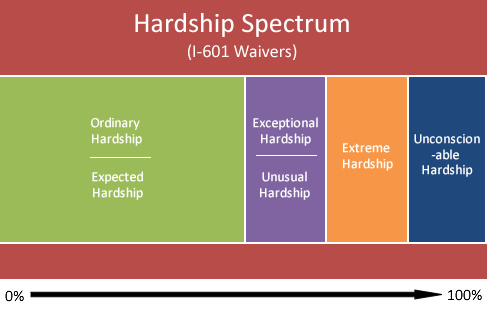
Editor’s Note: If you would like to read immigration predictions for 2019, see this article: Five Immigrant Rights Activists Share Their Predictions For 2019.
By Chasity Alvarez
As 2018 begins, there are several issues which all immigrants and their families will need to face in the coming year.
Before jumping in, I would first like to address a point raised by President Trump last year.

DACA is dead.
Or more precisely, the death bed has been rolled out.
In a few months, all that will remain for many immigrants is a bitter memory.
I’m not surprised.
But now is not the time to wallow in self-pity.

What’s the number one cause of the breakup of immigrant families when the immigrant parent is a permanent resident?
Aggravated felonies ?
Failure to naturalize?
When I’ve posed this question at public forums, critics attempt to undermine its importance by suggesting it asks the immigration equivalence of whether the chicken or the egg came first.
Actually, it’s doesn’t.
Rather, their knee jerk response reflects a reckless indifference towards the failure of lawful permanent residents to take actions to ensure family unity.

“You’re not like them.”
What successful ethnic minority person in the United States has not heard that sentiment?
Perhaps it was a statement over a glass of wine at a company Christmas party. At lunch with co-workers. Or at a school function for their children.
As a Riverside immigration attorney, I’ve even heard similar expressions inside judicial chambers and lawyer meetings.
It’s often expressed in the third person.
“But Julio is not like other Salvadorans.”
This perspective has two major flaws.

It makes many sick to their stomach and want to gag.
It can take years, if ever, for the agony to subside. The hurt gets into your soul, lingering in the backdrop to your daily activities, and there’s no running away from the incessant mental anguish.
Deportation is unforgiving.
For spouses of immigrants, the moment a husband or wife is ordered to be deported is similar to the fateful juncture when a loved one is declared deceased.
They must instantly begin to address and undergo emotionally painful adjustments in their lives they were hoping to never experience.
Deportation – like death – rearranges lives permanently.

The study of history, it’s been said, is the study of unintended consequences.
This is true on the personal as well as the public level. For immigrants, especially those from South and Central American countries, the proposition has dire meaning.
Beginning their journeys with uncertainty the norm, most of them realize unplanned events on the trail to the U.S. can lead to life-changing outcomes, abrupt endings, and death.
Arrival ensures no less unpredictability.
Small miscues can set in motion undesirable though foreseeable consequences.

Many folks decide to handle immigration cases on their own. That’s understandable.
It is rarely prudent.
Over the years, I’ve seen the outcome for countless individuals who decided to represent themselves in immigration matters.
Take immigration court hearings.
Representing my own clients fighting deportation at court, I’ve watched pro per immigrants sitting before a judge, neither comprehending court rules nor understanding what the judge is asking them.
It’s p-a-i-n-f-u-l to watch.

As the new year dawns, most of us reflect where we’re headed, individually and collectively. Internal strength and resolve are once again at a premium, if our positive thoughts and words are to be turned into actions.
Countless resolutions, based on ideal visions of ourselves in the future, are projected for the year to come.
Unfortunately, when it comes to immigration, optimism is missing in action.
The Happy New Year ended when the clock struck midnight at Times Square.

To say that I was puzzled when I initially viewed the new USCIS policy guide on proving hardship for I-601 waivers is to understate my reaction.
It wasn’t based on the law.
Several months ago, when USCIS announced its intention to create hardship waiver guidelines, I went on record that I did not perceive any major additions or substantive changes forthcoming. After closer review of the new guidelines, my position remains unchanged.
On the contrary, I feared some of the proposed language could make it tougher to win hardship waivers.













